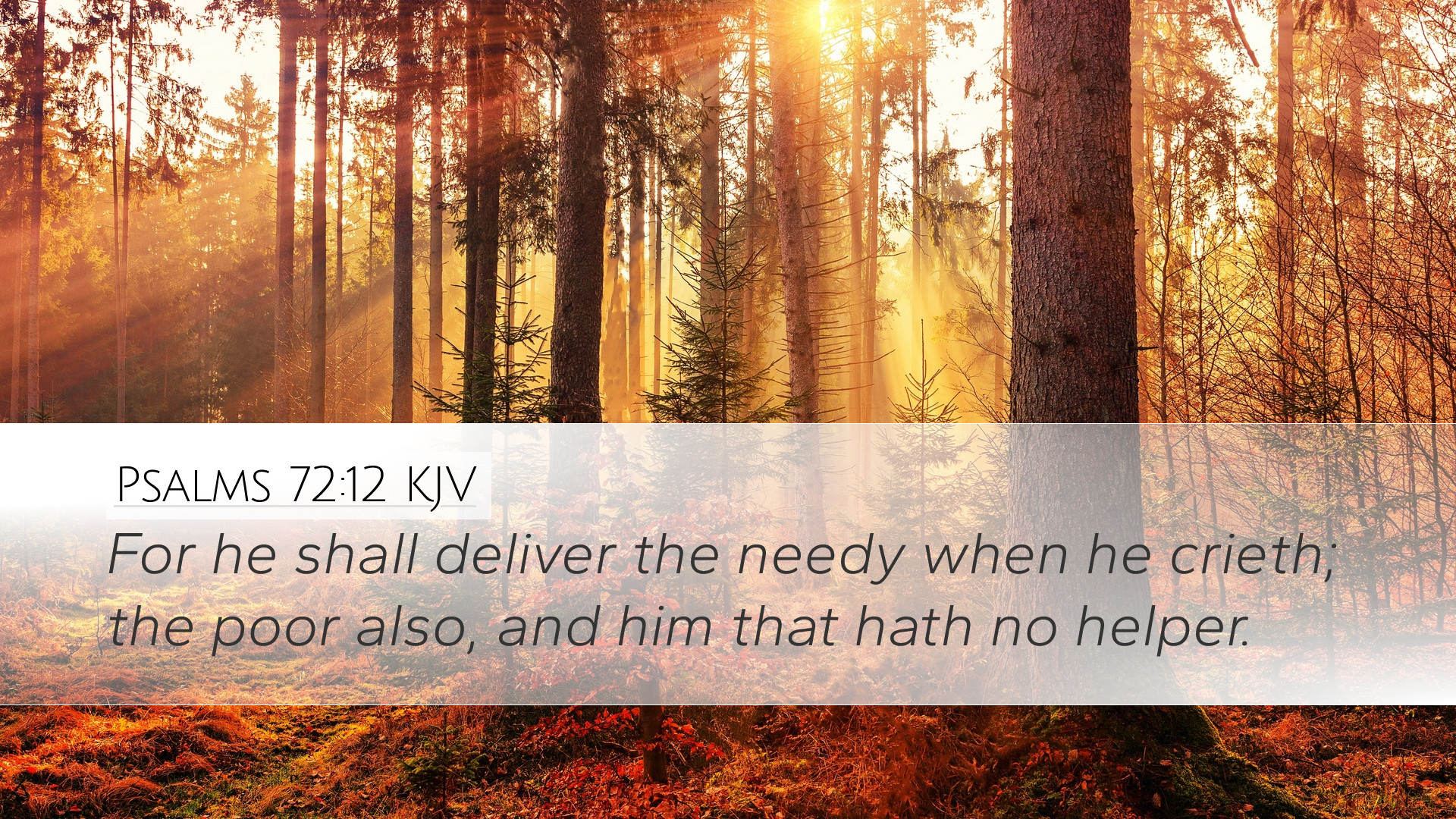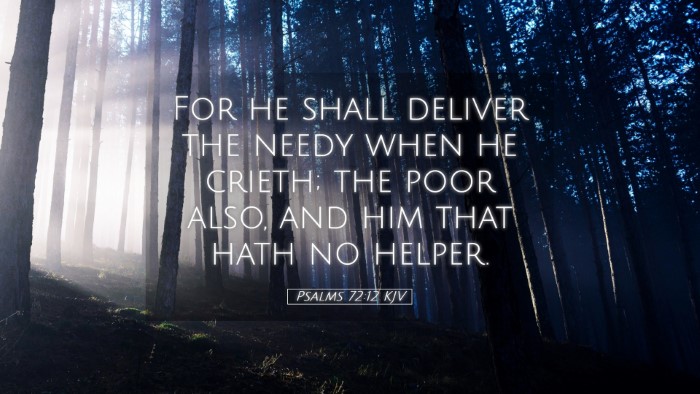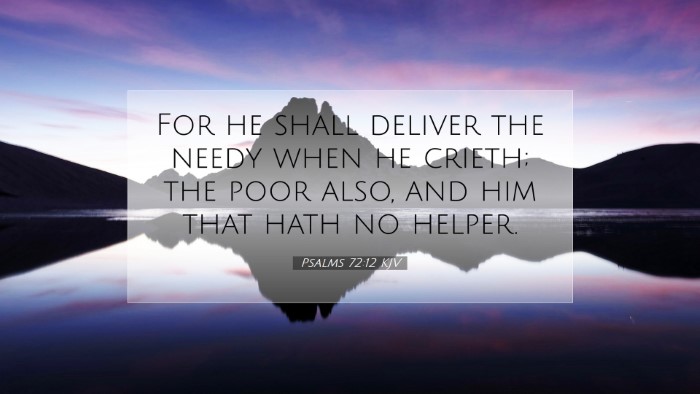Commentary on Psalms 72:12
Bible Verse: "For he shall deliver the needy when he crieth; the poor also, and him that hath no helper." (Psalm 72:12)
Introduction
The psalmist expresses a profound and compassionate assurance of the king’s role in delivering the needy. This verse is a significant declaration of justice and mercy, which forms the foundation of divine kingship. In this commentary, we delve into the insights from Matthew Henry, Albert Barnes, and Adam Clarke, combining their thoughts to provide a comprehensive understanding of this verse's theological implications and practical applications.
Understanding the Context
The context of Psalm 72 is crucial for its interpretation. Traditionally attributed to Solomon, this psalm is often seen as a prayer for the king, appealing for God’s assistance in establishing a just and righteous reign. It envisions a king who exemplifies divine qualities in his governance.
Historical Context
The psalm is set within the framework of Israel's monarchy, where the king was expected to act as God’s representative on earth. This expectation is highlighted through the king's responsibilities towards the marginalized. The author emphasizes the necessity of divine guidance to govern wisely and compassionately.
Verse Analysis
He Shall Deliver the Needy
Matthew Henry comments on the intimate relationship between the king and the needy. He states that true kingship reflects the character of God, who is ever attentive to the cries of the disadvantaged. The "needy" represent not only those facing economic hardship but also spiritual and emotional lack.
The Nature of Deliverance
Henry notes that deliverance transcends mere physical rescue; it encompasses a spiritual restoration. God’s deliverance is comprehensive, addressing the multifaceted needs of individuals.
When He Crieth
According to Albert Barnes, the phrase “when he crieth” indicates a personal appeal to God during times of distress. This highlights the necessity of petition and the acknowledgement of one's need for help.
- The urgency of prayer: Barnes emphasizes that the needy should actively seek divine intervention. This act of crying out is often a last resort, showcasing desperation and faith in God’s mercy.
- The assurance of response: The text reassures that those who cry for help will indeed receive it, reinforcing the nature of God's faithfulness to His people.
The Role of the King
Adam Clarke elaborates on the king's duty to care for the disadvantaged, highlighting that a righteous ruler will act as an advocate for those without support. Clarke asserts that kingly authority must align with divine justice and mercy.
- Advocacy for the Poor: Clarke points out that the king should not merely focus on his own interests but ensure justice is served for the downtrodden.
- Model of Righteousness: The king is to embody the attributes of a shepherd, attentive to the needs and cries of his flock.
Theological Implications
This verse encapsulates essential aspects of God's character: His compassion and readiness to respond to the cries of the marginalized. The implications of this verse for modern-day readers are profound.
Divine Justice
The psalm reflects a broader theological theme of justice that resonates throughout Scripture. God’s commitment to the needy is foundational in understanding His nature as a just ruler. The verse challenges current leadership structures to reflect these divine attributes.
Spiritual Application
For pastors and theologians, there is a pressing call to emulate this model of leadership characterized by compassion and advocacy for the poor. It summons leaders to seek God’s heart for justice and to actively participate in delivering those in need.
Encouragement for the Faithful
Believers are encouraged to cry out to God in their times of need, knowing He is attentive. This promise of deliverance serves as hope amid difficulties, reminding individuals of their worth and God's unwavering commitment to care for them.
Practical Recommendations
In light of this commentary, several practical steps can be encouraged:
- Advocate for Social Justice: Engage in community outreach and support systems for the marginalized.
- Prayer and Intercession: Encourage a culture of prayer within church communities specifically for those in dire situations.
- Education: Teach congregants about God’s heart for the poor as seen throughout the Bible, encouraging active participation in serving others.
Conclusion
Psalms 72:12 offers a profound insight into the heart of divine kingship and the characteristics of a ruler who seeks to represent God's will. By examining the perspectives of Henry, Barnes, and Clarke, we uncover a rich tapestry of meaning that connects ancient wisdom with contemporary relevance. The call for justice and help for the needy remains timeless, urging all believers to seek to fulfill these divine principles in their lives and communities.


